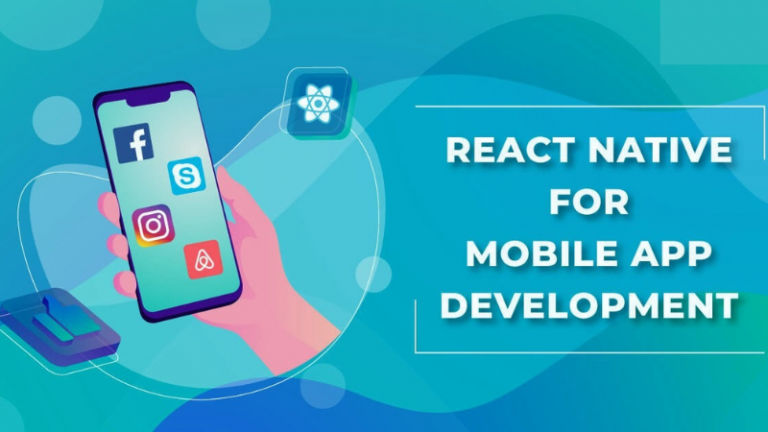React Native is a cross-platform mobile app development framework that uses JavaScript to build native-looking apps React Native has carved a strong niche in the cross-platform app development landscape. As we hurtle towards 2024, several trends suggest a bright future for React Native developers:
What does the future hold for React Native developers?
Enhanced Performance: React Native continues to improve its performance with each release. Efforts to optimize rendering, reduce startup times, and enhance memory management are ongoing, making it more efficient for building high-performance mobile applications.
Expanded Platform Support: React Native is not limited to just iOS and Android anymore. Efforts to support additional platforms like Windows, macOS, and web are gaining traction. This expansion opens up new opportunities for developers to target a broader range of devices and users.
Increased Adoption: React Native has seen widespread adoption by both startups and large enterprises due to its ability to build cross-platform applications with a single codebase. As more companies embrace React Native, demand for skilled developers is likely to continue growing.
Integration with Native Code: React Native’s ability to incorporate native code seamlessly allows developers to leverage existing native libraries and components. This flexibility enables developers to access platform-specific features and optimize performance where necessary.
Community Support and Ecosystem Growth: React Native has a vibrant community that contributes to its ecosystem by creating libraries, tools, and resources. This support network provides developers with access to a wealth of resources and expertise, making it easier to overcome challenges and build robust applications.
Focus on Developer Experience: Improving the developer experience is a key focus for the React Native team. Efforts to streamline development workflows, provide better tooling, and enhance debugging capabilities are ongoing, making it easier for developers to build and maintain React Native applications.
Integration with Emerging Technologies: React Native is well-positioned to integrate with emerging technologies like augmented reality (AR), virtual reality (VR), and the Internet of Things (IoT). Developers can leverage React Native to build applications that incorporate these technologies, tapping into new markets and user experiences.
Why the Future of React Native Developers is Bright:
Cross-Platform Development: React Native allows developers to write code once and deploy it across multiple platforms, including iOS, Android, web, and even emerging platforms like Windows and macOS. This cross-platform capability significantly reduces development time and costs, making it an attractive choice for businesses looking to reach a broad audience.
Large and Active Community: React Native boasts a large and active community of developers who contribute to its ecosystem by creating libraries, tools, and resources. This community support accelerates development, fosters innovation, and ensures that developers have access to a wealth of resources and expertise to overcome challenges.
Strong Industry Adoption: React Native has gained widespread adoption across various industries, including tech, finance, healthcare, e-commerce, and more. Major companies such as Facebook, Instagram, Airbnb, and Walmart have successfully built and deployed React Native apps, demonstrating its suitability for both startups and enterprise-level applications.
Performance Improvements: The React Native team continually works on optimizing performance, reducing startup times, improving rendering efficiency, and enhancing memory management. These efforts ensure that React Native apps deliver a smooth and responsive user experience comparable to native applications.
Integration with Native Code: React Native provides seamless integration with native code, allowing developers to leverage platform-specific APIs, libraries, and components when necessary. This flexibility enables developers to access native device features and optimize performance while still benefiting from the productivity and code-sharing advantages of React Native.
Developer Experience: React Native prioritizes developer experience by offering features such as hot reloading, fast refresh, and robust debugging tools. These features streamline the development process, reduce iteration times, and enhance productivity, making React Native a joy to work with for developers.
Support for Emerging Technologies: React Native is well-positioned to support emerging technologies such as augmented reality (AR), virtual reality (VR), machine learning (ML), and the Internet of Things (IoT). Developers can easily integrate these technologies into React Native applications, unlocking new use cases and opportunities for innovation.
Continued Growth and Evolution: React Native continues to evolve rapidly, with frequent updates, new features, and improvements driven by both the React Native core team and the wider community. This dynamic ecosystem ensures that React Native remains relevant and competitive in the ever-changing landscape of mobile development.
There Are a Few Things You Can Do to Get Started:
Learn JavaScript: This is the foundation of React Native, so it is important to have a good understanding of JavaScript before you start learning React Native.
Take a React Native course: There are many online courses that can teach you the basics of React Native. This is a great way to get started if you don’t have any prior experience with mobile app development.
Join the React Native community: There are many online communities where you can connect with other React Native developers and learn from them. This is a great way to get help and support as you learn React Native.
The future of React Native developers is bright. If you are interested in a career in mobile app development, then learning React Native is a great way to get started.




